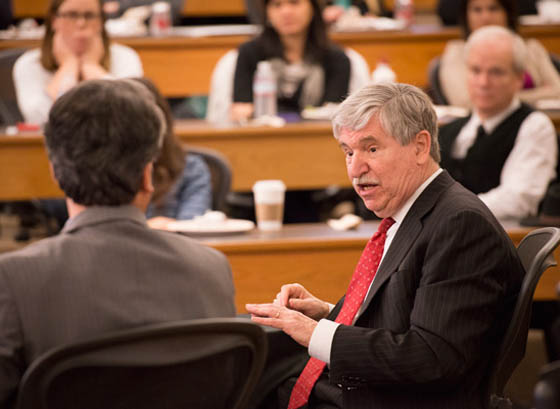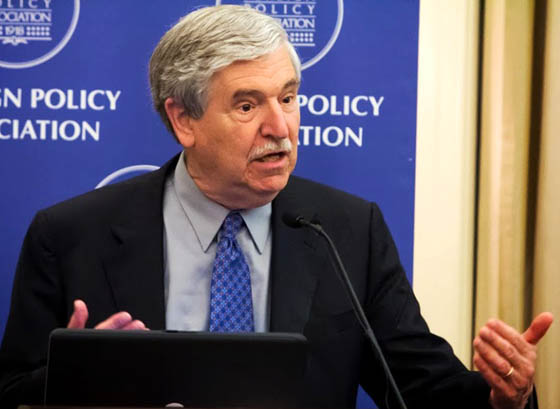Argo tore open a wound, says former hostage in Iran during visit to Stanford Law School

John Limbert tells Stanford Law students what it was like to be a hostage in Iran, gives his prescription for renewing relations with that country, and offers a frank assessment of the film Argo, AVA Diplomatic reports.John Limbert spent 444 days as a hostage in Iran after students took over the U.S. Embassy in Tehran in 1979. For nine months of that period, he was in solitary confinement.
To cope, “I had debates with myself,” Limbert told an audience during a recent talk at the Stanford Law School.
Now a professor of Middle Eastern studies at the U.S. Naval Academy, Limbert said he and his fellow American hostages established a code to communicate messages that involved tapping the walls. They also hid notes.
He said he wasn’t beaten. “But we were threatened.” There were mock executions.
“We were not treated very well,” he said in response to a question. “We didn’t have any sources of news. We were isolated. I was in constant low-level guerrilla warfare to find out what I could.”
For his service during the hostage crisis, Limbert received the Award for Valor. He also holds the U.S. State Department’s highest honor, the Distinguished Service Award.
In 2010, he left the State Department, where he had served as deputy assistant secretary of state for Near Eastern affairs.
At Stanford, Limbert spoke candidly about his time in Iran. His first visit to the country was in the 1960s with his parents and he went back as a Peace Corps volunteer teaching English before joining the Foreign Service.
He said the film Argo, which documents the plight of six Americans who escaped the embassy during the siege and took refuge with the Canadian ambassador, serves as a reminder of what happened and has sparked, for good or bad, a conversation about issues still unresolved.
“What Argo has done,” he said, “it’s torn a scab off a wound. … That’s not pleasant, but at least it’s forced people to confront this very ugly reality from 30 years ago.”
Limbert said he enjoyed the movie for its suspense and humor. “I have to admit I liked it,” he said. He quickly noted some inaccuracies but didn’t mock the film for them. The filmmakers, too, have been up-front about the latitudes they took with the story.
During his years in the Foreign Service, Limbert was ambassador to the Islamic Republic of Mauritania and also had posts in Algeria, Saudi Arabia, the United Arab Emirates and Djibouti.
Asked about U.S.-Iran relations today, he offered his own prescription for sparking dialogue: Talk about something other than nukes.
“We’re stuck. And the issue has become so central and so emotional and so difficult for both sides that if that’s the only thing we can talk about with the Iranians, we will fail,” he said. “We need to find something else.”
And what could that be, asked law student Arash Aramesh, who moderated the discussion.
Afghanistan, narcotics, navigation of the Persian Gulf, Iraq, offered Limbert.
“We need to find something we can talk about first, then maybe go back to the nuclear issue,” Limbert said.
The discussion with Limbert lasted about 90 minutes. Students and Stanford community members asked questions on everything from the film to the attack in Benghazi, Libya, last year that left the U.S. ambassador dead.
“In the case of Benghazi, you have to ask the question, just as you would in Tehran: If the situation is dangerous and if there is inadequate protection and security for our people there, then they shouldn’t be there,” he said.
“The lesson for me is – if we are going to send our people into difficult and dangerous situations, we do it with our eyes open.”


